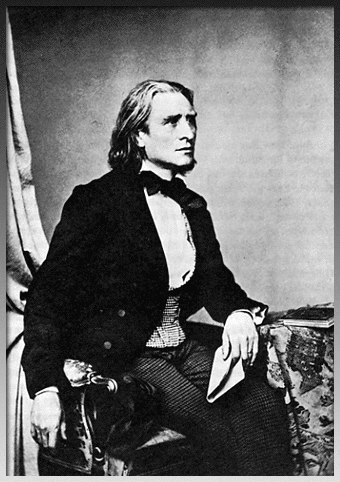Miami Piano Fest closes with Beethoven via Lisztian bombast

The Miami Piano Festival concluded Sunday with Franz Liszt arrangements of Beethoven symphonies.
Following three nights of debut recitals by pianists from Russia, France and Brazil, the Miami International Piano Festival’s Discovery Series concluded with a two concert marathon featuring performances by several festival regulars of Franz Liszt’s transcriptions of five Beethoven symphonies. Rarely played in concert, these ambitious arrangements are real pianistic esoterica that drew an enthusiastic audience to the Sunday afternoon performance at the Colony Theater.
Liszt revered Beethoven and devoted over two decades to setting all nine of the titan from Bonn’s symphonies for the keyboard. Clearly conceived for Liszt’s own formidable pianistic virtuosity, these works present technical challenges that few pianists can surmount.
The scores also illustrate the limitations of transcriptions. While many small-scale works can be successfully rearranged for a variety of instruments, Beethoven’s symphonic masterpieces are fundamentally orchestral works. Despite Liszt’s ingenuity and dedication, these pianistic reinventions sometimes resort to overblown bombast in a vain attempt to reproduce the sonorities of a large ensemble. Movements that are less complex, like the Adagio of the Fourth Symphony, emerge best as solo vehicles.
Of the three symphonies presented at Sunday’s matinee, the Symphony No. 6 (Pastoral) is a relatively straightforward reworking of the orchestral score, Liszt basically transferring the principal melodic lines to the piano. The Symphony No. 5 represents the other extreme – a gargantuan showpiece, replete with bravura flourishes. Symphony No. 4 occupies a middle ground, alternating intimate moments so beautifully conceived that they would not seem out of place in a Beethoven sonata with other sections in which extremes of volume are meant to simulate an orchestra.
Certainly a little of this brand of Lisztian wizardry goes a long way and three of these pieces in a single concert may have been one too many. (The Seventh and Ninth symphonies were also performed in a second program Sunday evening.) Two of three pianists gave remarkable performances, scaling the nearly insurmountable technical hurdles with aplomb, while a third faltered.
Francesco Libetta opened the proceedings with the Symphony No. 4. Usually a reserved player notable for his aristocratic shaping of melodic lines and subtle color palette, Libetta exhibited the kind of large-scale, steel-toned display of commanding virtuosity that met Liszt’s writing on its own terms. For all his volume and speed, Libetta was most impressive in the softer passages. The dark, low tones of the introduction seemed to come from some mysterious lower depths while the elegant line and supple phrasing of the Adagio suggested the intimacy of lieder.
Playing without a score, Kemal Gekic attacked the Symphony No. 5 with relentless urgency. He dispatched fistfuls of notes at fierce speed, the pulse and tension unimpeded. In the famous trio of the Scherzo, usually played by the double basses, Gekic executed Liszt’s left-hand version with fleet accuracy. Taken at rapid clip and top volume, the finale was a stunning demonstration of no holds barred, high velocity bravura.
After two such brilliant performances, Eric Ferrand-N’Kaoua’s traversal of Symphony No. 6 was a letdown. The French pianist had previously appeared at the festival as accompanist for the eccentric violinist Gilles Apap. After a lightweight, promising start, Ferrand-N’Kaoua struggled fitfully with Liszt’s Herculean demands, at times only approximating runs. Joking to the audience about raising the piano bench and ad-libbing between movements, his platform manner was inappropriate to a serious concert honoring two historic icons.
Posted in Performances
One Response to “Miami Piano Fest closes with Beethoven via Lisztian bombast”
Leave a Comment
Mon May 21, 2012
at 11:58 am
1 Comment







Posted Jun 03, 2012 at 3:31 pm by Dorothea LaFrieda
As usual, your review is right on target. I felt Ferrand-N’Kaoua was not up to the challenge. Libetta is a wonderful sensitive player who I prefer to hear play romantic music. GeciK is a powerful pianist who is in his element when he plays Lizt.